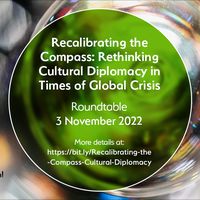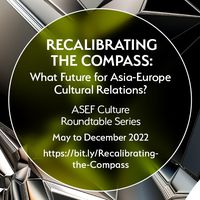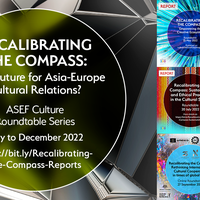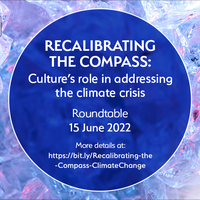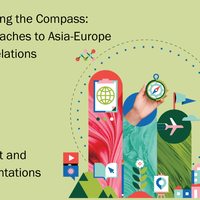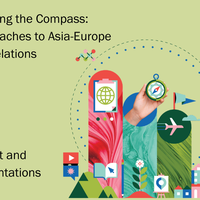ASEF Roundtable #2: Recalibrating the Compass | Culture’s Role in Addressing the Climate Crisis
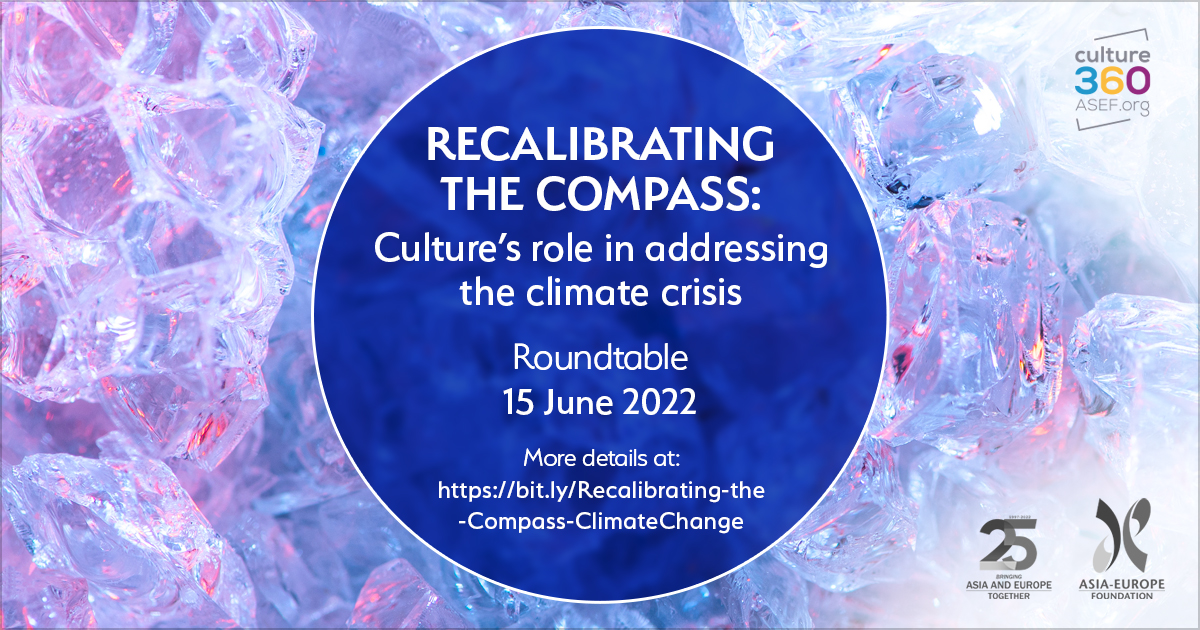
As part of the series “Recalibrating the Compass: What Future for Asia-Europe Cultural Relations?”, ASEF Culture has organised its second roundtable with a focus on the specific contribution that the culture sector can make in the context of the climate crisis, and its responsibilities vis-à-vis this context. Participants to the roundtable will also consider what policies, support mechanisms and forms of cross-regional collaboration can enable cultural organisations and professionals to be better prepared to act in this context.
- What is the place of culture in the climate change discourse?
- What are the sectors contributions and responsibilities?
These are some of the questions that we will address during the conversation.
The highlights of roundtable #2: Recalibrating the Compass | Culture’s Role in Addressing the Climate Crisis will be available after the roundtable on culture360 social media channels. In addition, a comprehensive report of the roundtable will be published on culture360.
Key Highlights from the Roundtable
- The global pandemic has accelerated a shift in governments towards involving different sectors in addressing the climate crisis. The cultural sector has the capacity and language to sit at the table with the policy makers.
- Cultural institutions have the responsibility to lobby governments to advance the cultural agendas on climate change. In doing so, they need to involve a more diverse range of actors within the sector, including younger and older people.
- A collective approach between artists, arts professionals and organisations in the cultural sector is key in bringing together diverse voices. It also allows for responsibilities to be shared rather than carried out individually.
- Additionally, a collective approach enables the creation of coalitions with other sectors. These coalitions can address policy makers with a much stronger voice and demand for these conversations to happen rather than wait to be asked.
- The role of intermediaries such as social grassroot organisations is key in bringing together different agencies and linking artists to the policy level. In this sense, international platforms such as the recent COP 26 in Glasgow have allowed for artists to play this role and bring more diverse voices to the conversation.
- Cultural organisations should question what they do and reflect on their environmental impact through the lens of climate justice. This includes not only cultural mobility but also interrogating their supply chains.
- Cultural mobility should also be rethought through the climate justice lens. Travel for artists remains essential and should continue to be supported. However, one solution for all is not the answer. It is important to understand the context and leave room to experiment with forms of mobility that can be longer, slower and deeper.
- In the context of Asia-Europe cultural relations, cultural exchanges should continue to be supported. However, they should always consider local contexts and histories in order to be more respectful and inclusive.
Recalibrating the Compass: What Future for Asia-Europe Cultural Relations? aims to facilitate conversations on pressing themes for the arts and culture communities in Asia and Europe with a view to designing a new, more resilient, and participatory approach for the future. The series will culminate in a public webinar in late 2022, where findings and recommendations from the roundtables will be shared and discussed in an open forum.
Click here for the report of roundtable #2 and the launch of roundtable #3 on sustainable and ethical practices in the cultural sector.
Powered by Froala Editor
Similar content
from - to
03 Nov 2022 - 03 Nov 2022
posted on
26 Jun 2023

